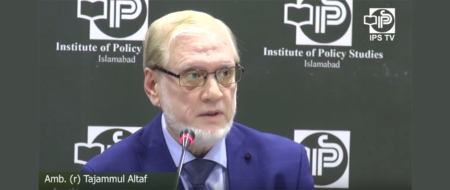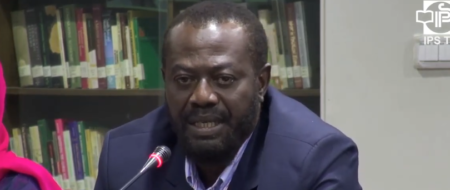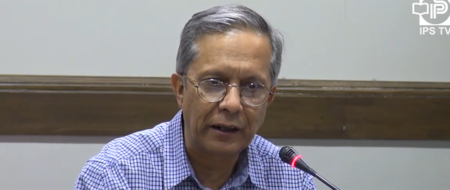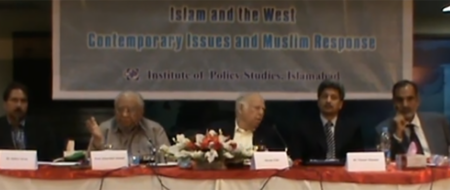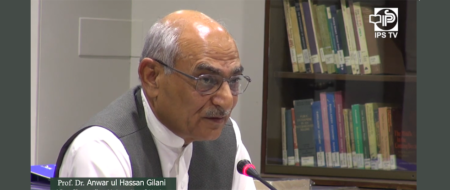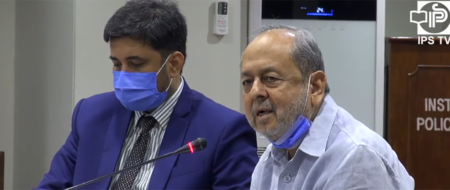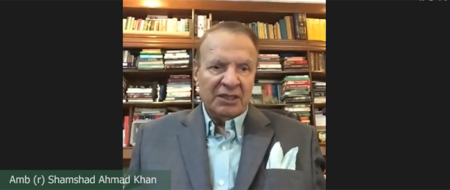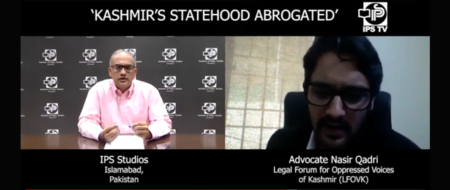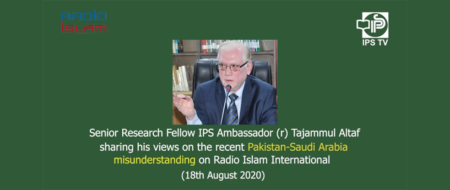Global competition: Need is to challenge existing global paradigm
“Powerful players in today’s competition – be it business, politics wars or other areas – have the ability to influence not only the ground situation from a distance but also the human minds by managing the perceptions.
DG-IPS presents policy paper in conference on China’s new reforms and role of CPC
“Powerful players in today’s competition – be it business, politics wars or other areas – have the ability to influence not only the ground situation from a distance but also the human minds by managing the perceptions in their favor irrespective of the legitimacy or otherwise of their objectives. It is no wonder then that though the number and intensity of disputes and conflicts is generally on the rise, in many cases these are justified with attractive catch-words and slogans. Thus the interests of powerful far-away players are actually protected. Added attention on public diplomacy and advocacy organizations also reflects this phenomenon.”
This was the premise of a paper: “Competition without Zero-Sum Outcome: China’s Role in a Changing World” presented by Khalid Rahman, Director General, Institute of Policy Studies, Islamabad, at a three-day international conference being held in Beijing, China from 3rd to 5th September.
Organized jointly by China Center for Contemporary World Studies (CCCWS) and China Foundation for Peace and Development (CFPD) the conference is titled “The Party and the World Dialogue 2014” on the theme of “China’s New Reforms: the Role of the Communist Party of China (CPC)”. The Dialogue is focusing on China’s new round of reforms gathering senior central and local officials of the CPC, renowned Chinese and international scholars and experts on the CPC and China; and seeks to promote candid, in-depth and constructive exchanges between Chinese and international academia and the Party’s leadership, decision-makers and reform-practitioners at various levels.
DG-IPS Khalid Rahman, in his paper, argued that we are living in an age where the competition for gaining or sustaining supremacy is no more confined to the military battlefield; narrative is being controlled in order to maintain and further improve the international standing and establishing controls, by way of molding and satisfying the public opinion within and outside, by justifying the position and policies and attain operational objectives.

“This has turned today’s competition into a media war – in which intellectuals, think tanks, and aid and relief agencies also play an important role. It is a ‘war of narratives’ and the whole world is a battleground, wherein the success of any power depends on its potential – and use of this potential – to influence human minds and shape their perceptions,” he stated.
He viewed the competition to control the economic resources as the main cause of conflicts and wars in recent times.
“The unhealthy environment of competition has also impacted the global governance and institutions related to it. The global institutions, most importantly the UN, as well as international laws related to the war and conduct of war and the human rights regime are practically becoming irrelevant. Unfortunately, the institutions could not play their role successfully in the resolution of conflicts and thus preventing the wars as, in most cases, the powerful players continue to use them in their favor. Unilateralism and preventive strike doctrines now seem to have practically taken away what the world had achieved in terms of international laws and human rights in centuries. Hegemonies and power politics are continuing in the name of ‘national interest’, rendering the institutions like UNSC incapable to perform its role, while the role of non-state actors has become increasingly evident,” he explained.
He was of the view that the scenario provides two, somewhat, conflicting opportunities for China, i.e., playing a protective role for the existing world order as its stake in the current system were increasing and it was in a position to benefit in the present model of competition; or a proactive role, challenging the paradigm on which the present system is based and thus change the rules of the game (competition). The challenge before China, therefore, is to balance its perspective and practice to avoid the conflict.
He suggested the Chinese leadership to come up with an aggressive operational plan focusing on: creating an enabling environment for promoting a healthy competition within and outside in the best interest of peoples’ wellbeing and for the benefit of humankind; balancing the philosophy of pragmatism with harmonious development in practical terms, in order to cope with the challenges of inequalities, corruption and dishonesty, depleting moral and ethical standards and changing value framework, as in the absence of moral principles laws alone do not have the power to prevent the crime, clash and the conflict in any society; making an alternative perspective and narrative available and mobilize public opinion to develop greater awareness and consensus by ensuring an aggressive presence in the global media and academic discourse; providing an effective counter-balance in the global affairs, while avoiding confrontation in order to ensure stability of the world and directing the competition towards humane objectives; striving for upholding the objectives and principals of UN Charter, observance of international laws and conventions; playing an assertive role in the UNSC to make it genuinely representative and enable it to address the hotspot issues; and continue sharing, rather at a faster pace, its development experience, knowledge, technology and skill with the developing world.




